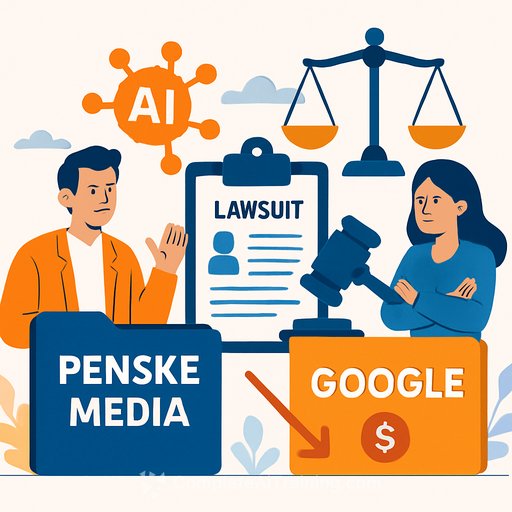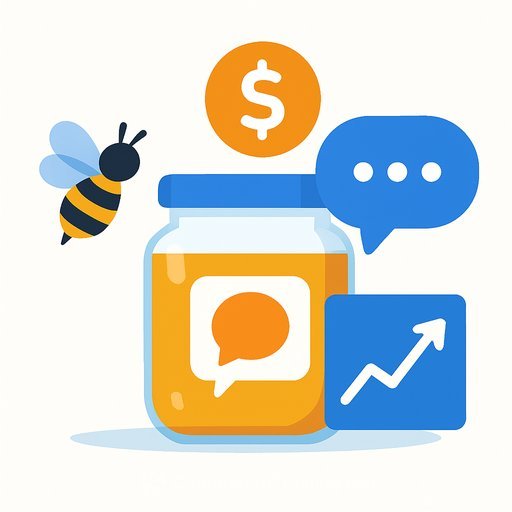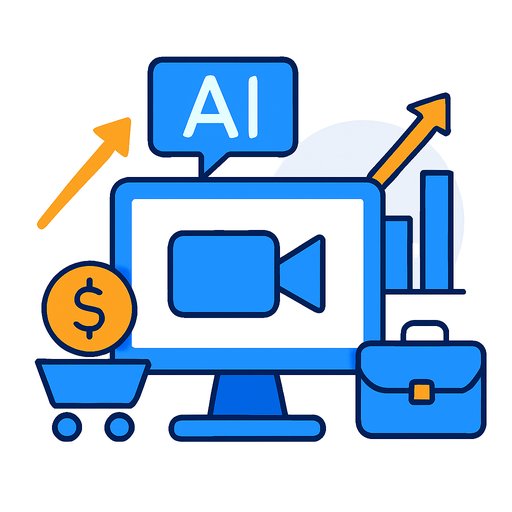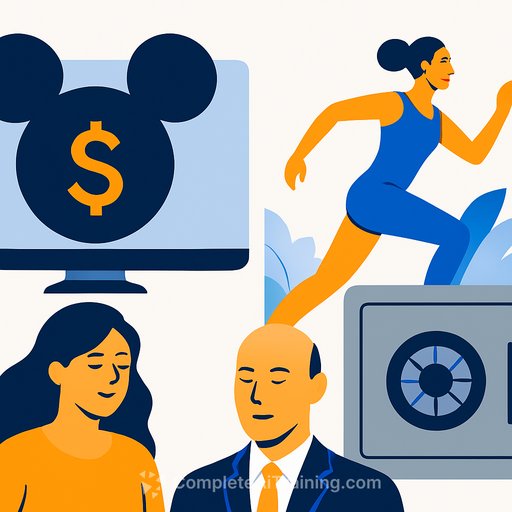Penske vs. Google: What PR and Comms Leaders Need to Know Now
Penske Media Corp. has sued Google, claiming AI Overviews are repackaging its content and siphoning traffic and revenue from titles like Variety, Rolling Stone, and Billboard. The complaint says roughly 20% of Google results pointing to Penske properties now include AI Overviews, which answer queries on the results page and reduce clicks. Penske alleges affiliate revenue has dropped more than 33% since late 2024. This is the first major publisher challenge to Google's AI-driven search features-and it could set a template for others.
Why this matters to PR and comms
Distribution is shifting away from publisher sites and toward zero-click answers. That impacts earned media value, campaign measurement, and the credibility you promise stakeholders. If AI Overviews absorb intent, your stories earn mentions without the visits that justify budgets.
The bigger picture
Penske's suit echoes broader frustration. Chegg filed a similar case earlier this year over traffic declines. Industry reporting suggests AI summaries correlate with referral drops of up to 25% for many publishers, with zero-click behavior rising.
The legal claims include copyright infringement and unfair competition tied to training on scraped content without licenses. All of this lands as Google faces scrutiny over market power in search and AI, even after a recent DOJ ruling stopped short of divestitures but flagged dominance concerns.
Google's stance
Google calls the suit meritless and says AI Overviews link prominently to sources and drive "higher-quality" traffic. Internal data, according to the company, shows deeper engagement on linked pages. Meanwhile, industry voices argue features are cannibalizing revenue and muddying attribution.
Signals you can cite
- Penske claims 20% of its Google-linked results now include AI Overviews.
- Reported affiliate revenue down 33%+ since late 2024 for Penske.
- Analyses point to up to 25% referral declines tied to AI summaries across publishers.
- A Pew Research Center study found AI summaries decrease clicks to websites, validating publisher concerns. Pew Research Center
- Policy experts are pushing for updated competition frameworks for AI-era platforms. Brookings Institution
Action plan for PR and Communications Teams
1) Reset expectations with leadership
- Explain that zero-click answers reduce trackable visits even when coverage increases.
- Shift success metrics: visibility in AI answers, brand mentions, sentiment, and assisted conversions.
- Budget for owned channels to offset lost discovery from search.
2) Update your media strategy
- Prioritize exclusive data, contrarian POVs, and original visuals-content less likely to be fully summarized.
- Pitch for quotes and brand mentions that are hard to compress into a generic AI blurb.
- Negotiate for prominent links, in-article CTAs, and newsletter placements from media partners.
3) Fortify owned channels
- Drive newsletter signups from every campaign asset. Make email your hedge against platform volatility.
- Use UTM discipline across all placements to capture assisted value beyond last-click.
- Build topic hubs and FAQs that answer intent comprehensively and encourage on-site exploration.
4) Technical and policy moves
- Review robots and meta directives with legal and SEO: "nosnippet" reduces exposure but can limit unwanted summarization; weigh trade-offs.
- Evaluate Google-Extended and similar controls to limit model training on your content where appropriate.
- Implement structured data to improve attribution and source visibility in AI-supported surfaces.
5) Affiliate and monetization adjustments
- Diversify beyond classic affiliate placements that AI summaries can replace with on-page recommendations.
- Use short-path funnels (lead magnets, trials) that don't rely on a click from search to perform.
- Strengthen retail partnerships and negotiated placements that guarantee exposure.
6) Messaging guidance for execs and spokespeople
- Key point: We support innovation, but value exchange must be clear-rights, attribution, and revenue.
- Emphasize the cost of original reporting and why sustainable distribution matters for the public.
- Invite collaboration: licensing, opt-in training, and revenue-sharing models.
7) Stakeholder FAQs you'll be asked
- Are our media wins still driving results? Yes, but more value is unclicked-track mentions, assisted conversions, and brand search lift.
- Can we block AI entirely? Partial controls exist; full exclusion has trade-offs. We'll apply guardrails where it protects value.
- Should we reduce PR investment? No-adjust metrics, increase owned channels, and design content to earn attributable outcomes.
8) Crisis scenarios to plan for
- Misattributed or outdated AI summaries: prepare rapid correction protocols and publisher escalation paths.
- Affiliate revenue compression: pivot to partnerships, direct response offers, and CRM-led conversions.
- Legal shifts: be ready to revise content policies if licensing or opt-in regimes change.
Metrics to watch
- Branded search volume and share of voice across AI answers.
- Referral mix by channel and the ratio of mentions to clicks.
- Newsletter growth, repeat site visits, and time on key topic hubs.
- Affiliate EPC/CPA trends and partner-level performance.
What's next
Penske seeks damages and an injunction to stop use of its content in AI training. If the case gains traction, expect class actions and pressure for revenue-sharing similar to deals in Europe. Other AI-first search players are already facing legal heat, which widens the lane for new standards.
For PR teams, the takeaway is simple: control what you can. Make content harder to strip of context, build owned demand, and measure beyond the click. Prepare your stance on licensing and model training now-before policy forces your hand.
Level up your team on AI and search
If you're building internal capability, explore practical courses for comms and marketing pros at Complete AI Training: Courses by Job and this focused program for Marketing Specialists. Equip your team to plan, produce, and measure in an AI-shaped search environment.
Your membership also unlocks:






